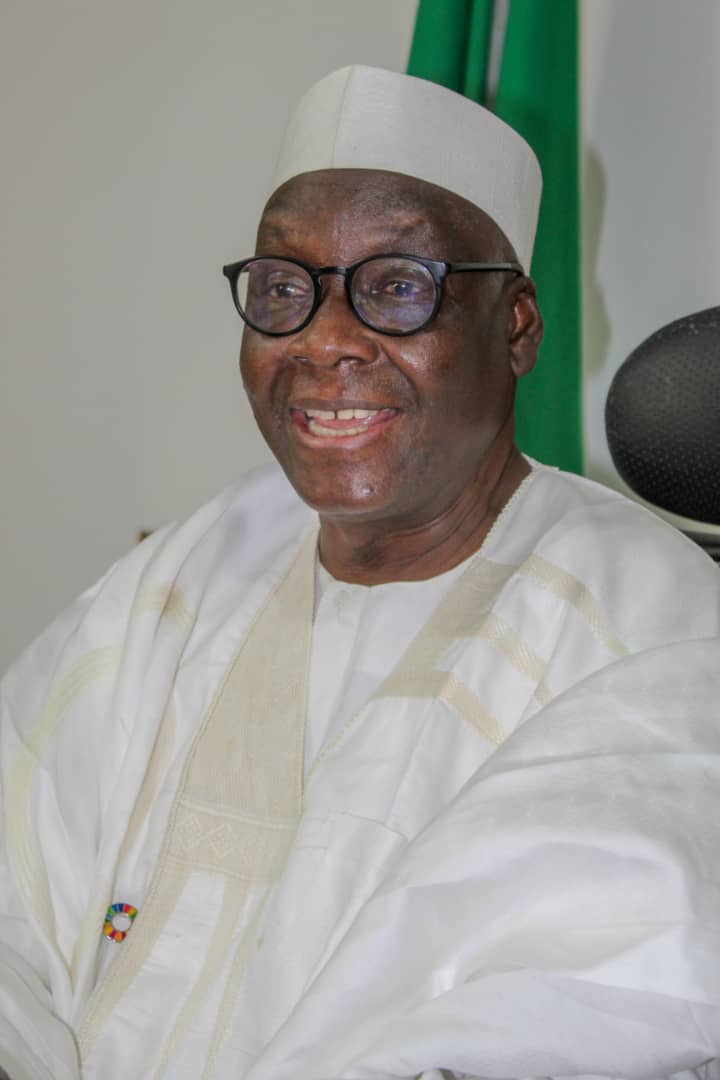Before his appointment as the Director General of the National Orientation Agency (NOA), Dr. Garba Abari was a senior lecturer in the Department of Political Science, University of Maiduguri where he taught political economy, international economic relations and comparative politics at both undergraduate and postgraduate levels.
In this must-read exclusive interview with the Gazelle.Com Editorial Crew, Abari spoke on the origin of the Boko Haram crisis, Farmers-Herders clash, youth engagement and participation in the governance process, as well as various initiatives of the NOA under his leadership.
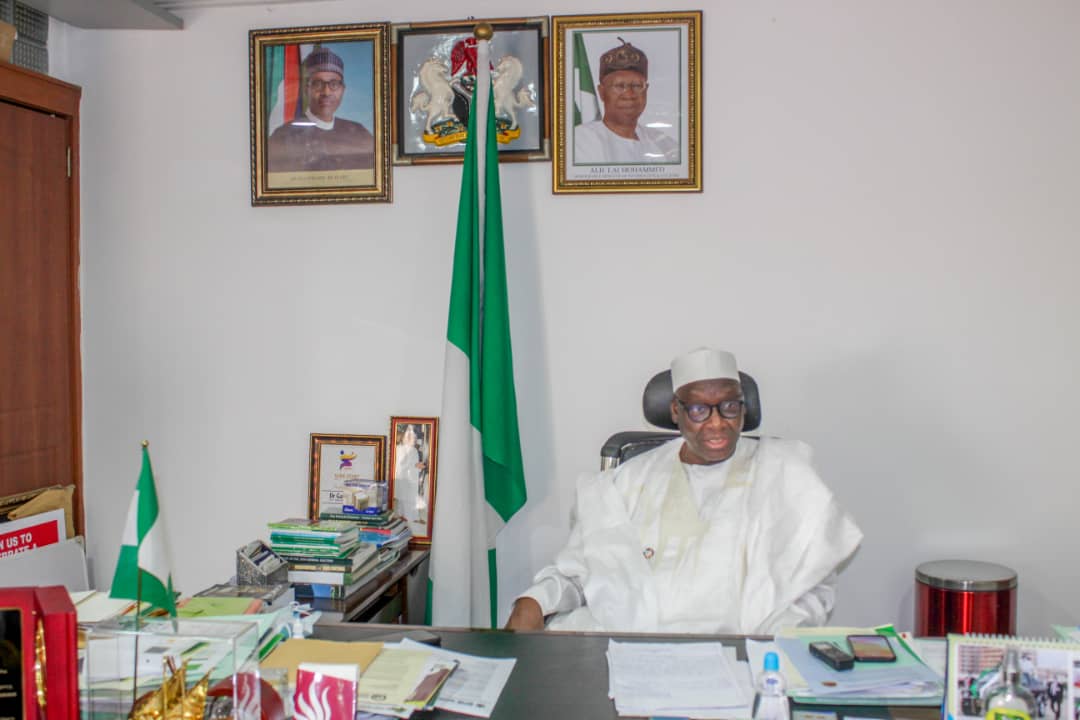
You were a lecturer and so far so good, how would you describe your experience transiting from the lecture room to being the Director General of critical agency of the Federal Government?
A very difficult but interesting question but let me say that they are entirely two different worlds. The life of a teacher in the University and the life of a public servant on a political appointment serving the government and by extension serving the nation at a level different from that of a teacher who serves the nation interacting with students in the classroom.
One, the University system has its own rules and regulations and therefore it has established rules of engagement in which it relates with the wider community. The university I used to know, if you like, is a Nigeria of its own and an international community because the personnel and what makes the university are essentially two bodies – the body of students and the body of teachers, and then there are also supportive staff – those who run the administration of the university to make sure that teachings and the research are not put into jeopardy but appropriately conducted. Coming into the experience that I have found myself today in government, it is an entirely different experience; different environment; and different challenges.
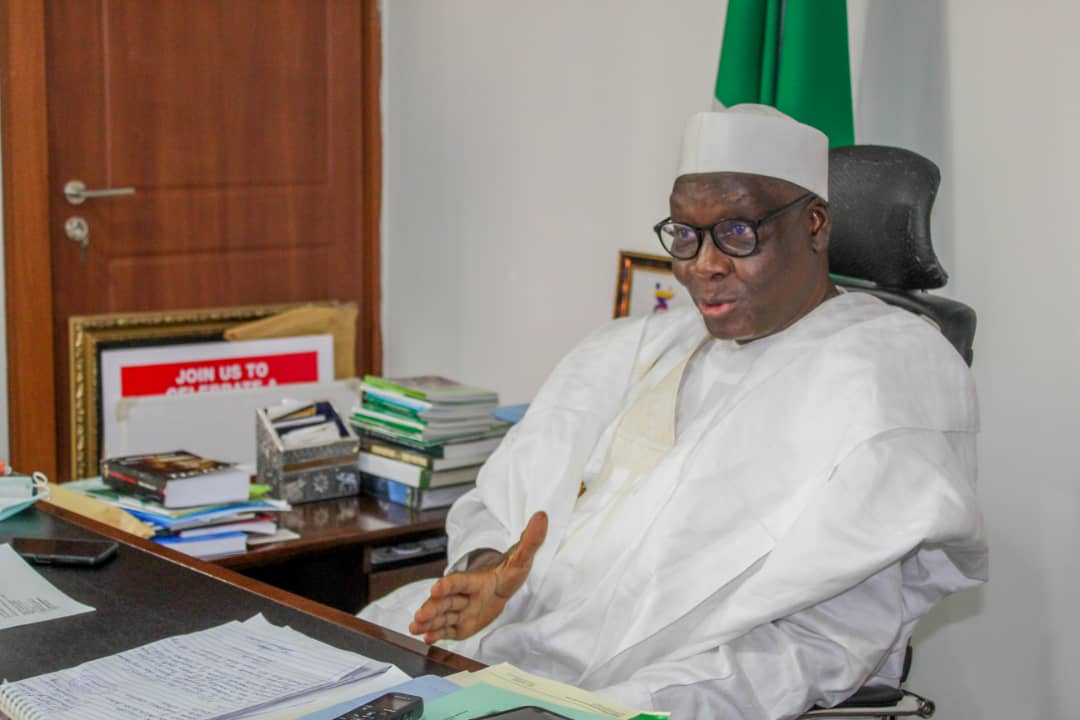
Challenges in what sense?
Challenges in the sense that while in the university, I was not in charge in the management of resources, in the deployment of resources because that is usually done by those statutorily mandated to do that on my behalf – the Vice Chancellor and his team in both academic and non-academic communities. Here, I am found serving in a Presidential system, meaning that I exercise powers on behalf of the President. I do everything to reflect, to safeguard, to promote, to protect the interest of the country as already attested by my principal; therefore you find that I exercise powers.
I do everything as an assistant to Mr President and this is the function of a public officer such as me in a presidential system. In the University, I cannot say I am assistant to the Vice Chancellor but here I am an assistant to Mr President. I am to assist Mr President to carry out all the things that need to be carried out to make his administration a success. These are the different experiences, different scenarios; different environment under which I operate.
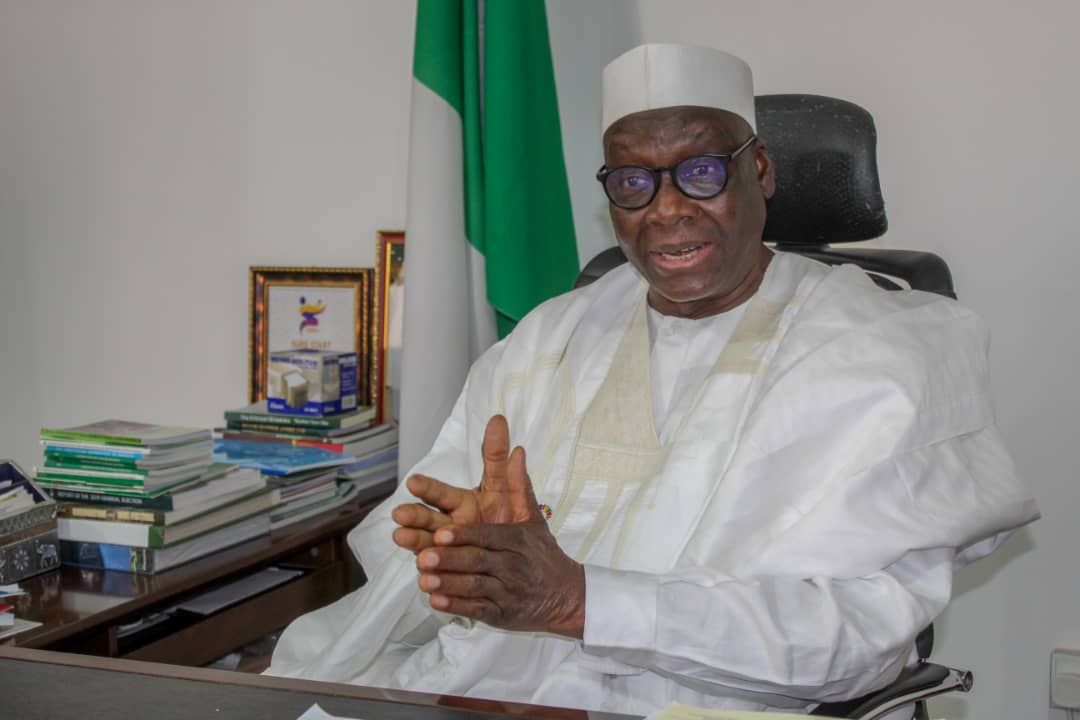
How would you say your experience in the university community prepared you for this higher assignment?
I am not sure if it is my experience in the university. What I can attribute to what prepared me for this responsibility is something which I can call three stages of the development of my personality.
First and foremost, I am coming from a family of public servants and by coming from a family of public servants, I do not mean necessarily public servants in the modern way of which we talk about it either Minister or Commissioner or Permanent Secretary. I am coming from a family of people who have devoted and keep devoting their time in the management of affairs of people. I grew up with a Grandfather who was a Waziri. The Waziri was like the Prime Minister in the Emirate where I came from and the experience of the way and manner in which we saw different people of different categories, cutting across different gender and groupings, being handled and managed adequately expanded our horizons about how to handle complex situations.
Secondly is the school system that I had gone through. The school system that I had gone through is a school system that really expanded my horizon; a school system in which I was able to make friends across ethnic and religious divide; a school system that prepared me as a middle class citizen; built my confidence; allowed me to discover my own peculiar personalities and therefore in so doing made me to cultivate a kind of self-worth that I can rise up to say I am a Nigeria and a product of a Nigerian education system that could compete with any education system of that time globally. Thirdly, is actually my understanding of the diversity of our country. Of all the 36 states of Nigeria, there is none I have not been to at least four times; of all the 36 states of Nigeria, there is no state that I cannot point to and refer to one, two, three, four as my own family. So, I have more than a bird’s eye view of the diversity of this country; I have more than a bird’s eye view of the complexity of this country; I have more than a bird’s eye view of the blessings of this country both in terms of human, material resources; I have more than a bird’s eye view of how great this country is, in spite of whatever challenges that we are passing through.
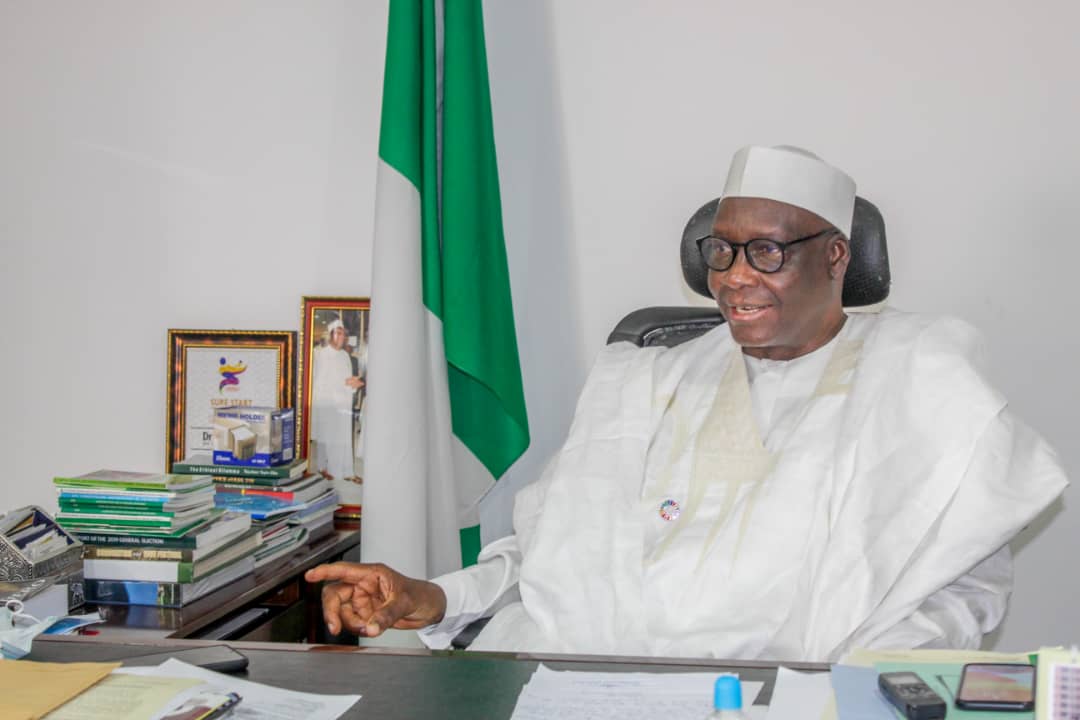
As the DG of this agency, what are the major assignments of the National Orientation Agency?
Big! Perhaps, if you ask me, for a country like ours that need a great deal of effort on the part of everybody, state institutions, individuals, religious groups, civil societies, traditional rulers, trade relations, trade unions, and everybody, for a country this diverse, there is perhaps no better agency that is centrally located to harness opinions, to galvanize such opinions, to sensitize such opinions, to guide policy makers at all levels – local, subnational and national towards creating a society that we all wished to see.
The NOA prides itself as an institution which speaks all Nigerian languages. Therefore, it is one institution that reflects truly the diversity of this country. That is one.
Two, it has such a very broad and cross-cutting mandate. Most of what is expected of the NOA can be summarized into three. One, supporting government in communicating with the citizens about what government is doing, why government is doing it, why citizens should support. Going back to government with feedbacks from citizens, what citizens think of what government is doing whether it is in sync with the expectations of what citizens want and we get back to government through a feedback mechanism.
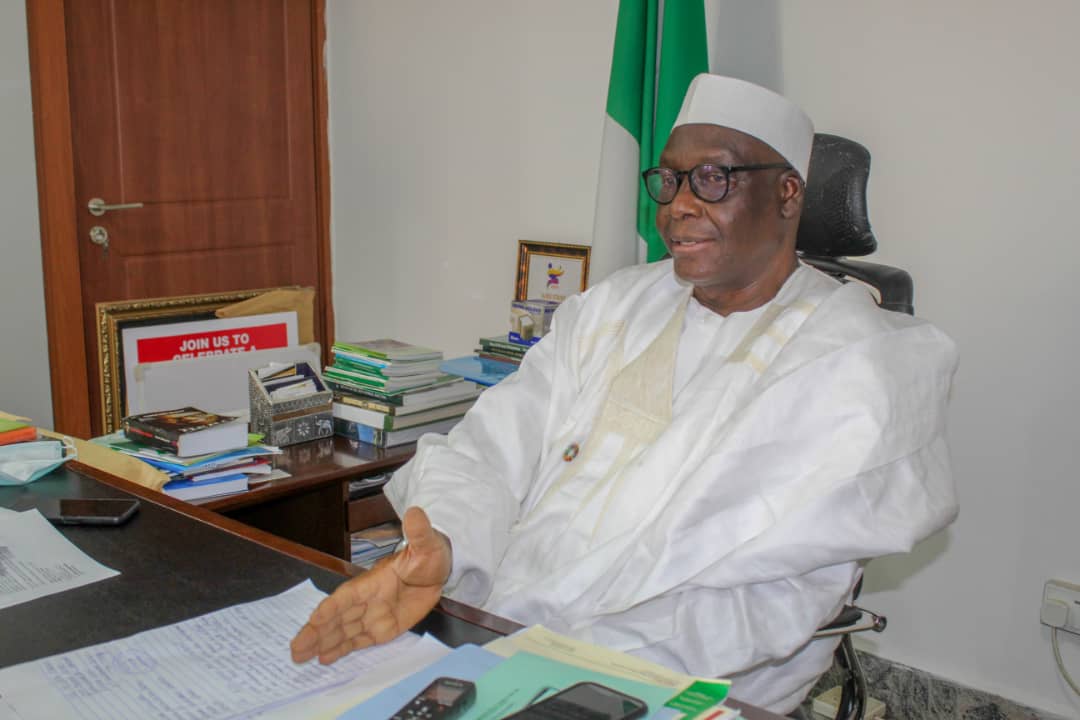
So, the central role of the NOA in this is communicating government policies, programmes and activities, with the view to making citizens understand, buy into and even where citizens do not buy into or citizens reject, such an action may only come from informed position and not from the position of ignorance. That is one. Two, the NOA is charged to a responsibility of creating a society that is disciplined, a society that is peaceful, a society that is secure, a society that is democratic, a tall order If you ask me, especially going by what we have been going through especially at the moment owing to decades of poor management of diversity, owing to decades of corruption, owing to decades of lack of continuity in policies as a result of truncated government and governance processes.
Perhaps, if we hadn’t have the disruptions and the hiccups actually that truncated the First Republic and we had allowed to grown with our mistakes and learning from our mistakes, making amends and experiences, our story would have been different from what we have today. So, for that function of creating a society that is peaceful, secure, democratic and disciplined, you can say a lot therefore is placed on the table of the NOA and this responsibility has not been lost out on it. How much has it done to actualize this?
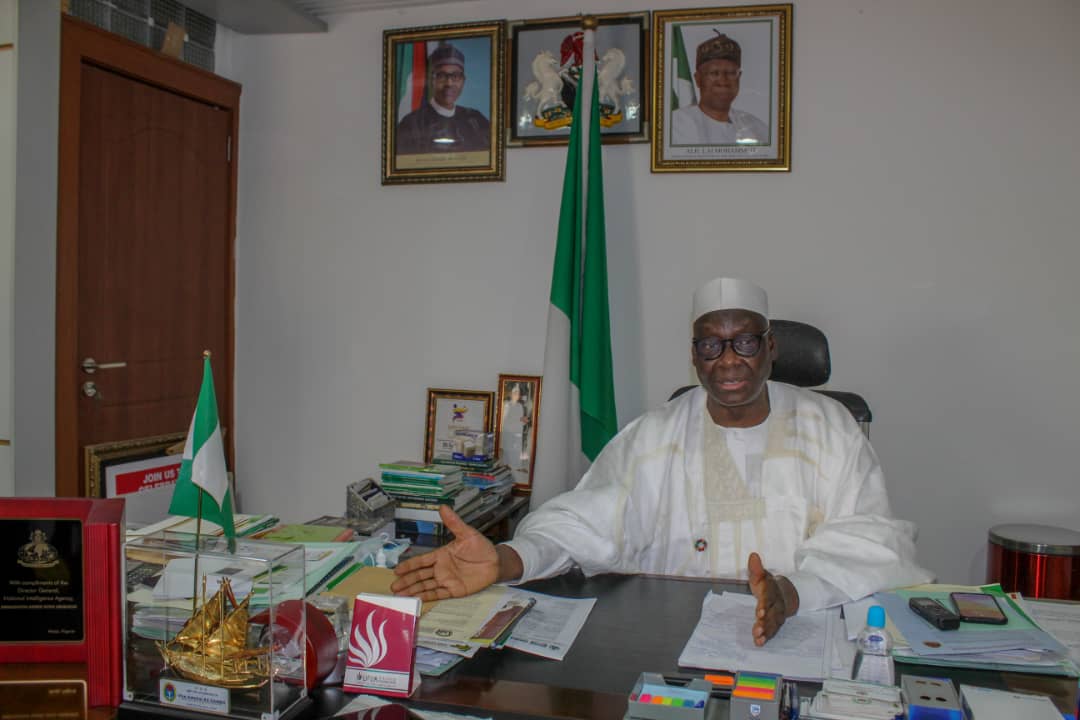
From the time of the MAMSER which was a creation of a military regime when the resource was not actually the problem, when the environment was different from what we are seeing today, when communication was only public communication. Only government radio stations and only government television stations; when the space was not a cyberspace like we are witnessing today; when social media was not there; the impact of the Mass Mobilization for Self Reliance, Social Justice and Economic Recovery (MAMSER) was much felt and don’t forget it was a military regime and therefore the order from centre went straight to the subnational level, went straight to the local government and then there was no problem. That is why in every MAMSER office of those days, you could find in every local government three, four and in some cases even five MAMSER vehicles going about sensitizing, going about talking, going about holding town hall meetings, going about and going about.
Today, we have a population of over 200 million still counting, we have an environment which has changed dramatically, we have huge population that does not listen your NTA network news that used to be the anchor for MAMSER; we have youths that does not listen to FRCN news at 7 o’clock but they are mostly on Netflix, they are on social media, they are on Instagram, Twitter, WhatsApp, Facebook, Snapchat, and so on and so forth. So, whatever effort that government will need to make to reach out to this large percentage of our demography, government has to go out of its way to reach out to these people and this is how to get them; this is how to go to meet them on the social media. And then, attempts are made to actually engage them physically as well. But like I said, this is the cyber environment; this is the environment of internet; this is a digital environment and because it is a digital environment, whatever you want to do to reach out to them must be done for it to be effective. You have to employ both the digital and the non-digital means because the larger percentage of the population is digital and so you go there.
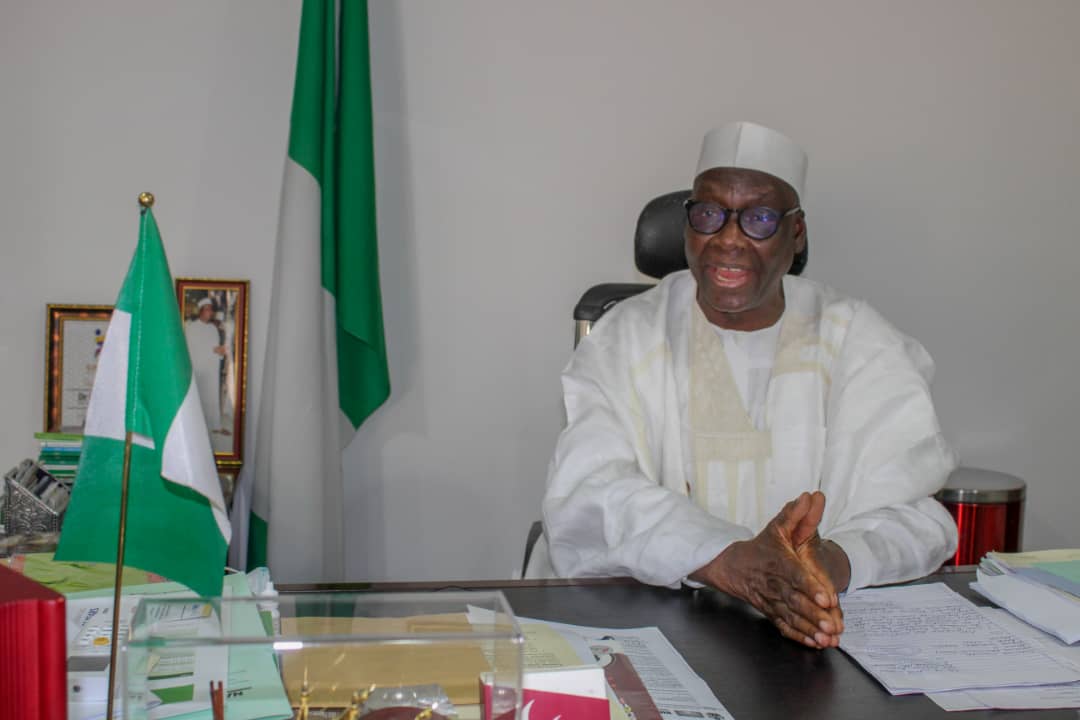
Flowing from engagement with the digital environment, recently, the NOA organized a Youth Summit and several recommendations came out of the summit. How far have you built on the recommendations?
Very well. As a matter of fact, we were so impressed with the responses and the turn out. We were very much excited with the turn out and with the outcome. We actually sat down and made formal report of the summit and sent to government. Now, arising from the responses, we are developing another round of youth summit this time large number and in fact to engage them specifically on issues that are very dear to my heart and I hope will also be dear to the hearts of young men and women like how much can our youths leverage the #NotTooYoungToRun Act because the hue and the cry was about the youths being marginalized, the youth being denied space, the youth being excluded, the youth being not allowed to contribute meaningfully in policy making and in policy decision-making, the youths being excluded from implementation of power system but these are all processes that will require being in the required places so that you become a responsibility bearer, to be a Senator, House of Reps member, a member of the House of Assembly, to be a Commissioner, to be a Local Government Chairman, to be a Councilor in your ward, to be a Presidential aide and to even aspire to be the President, to be a Governor, and so on and so forth.
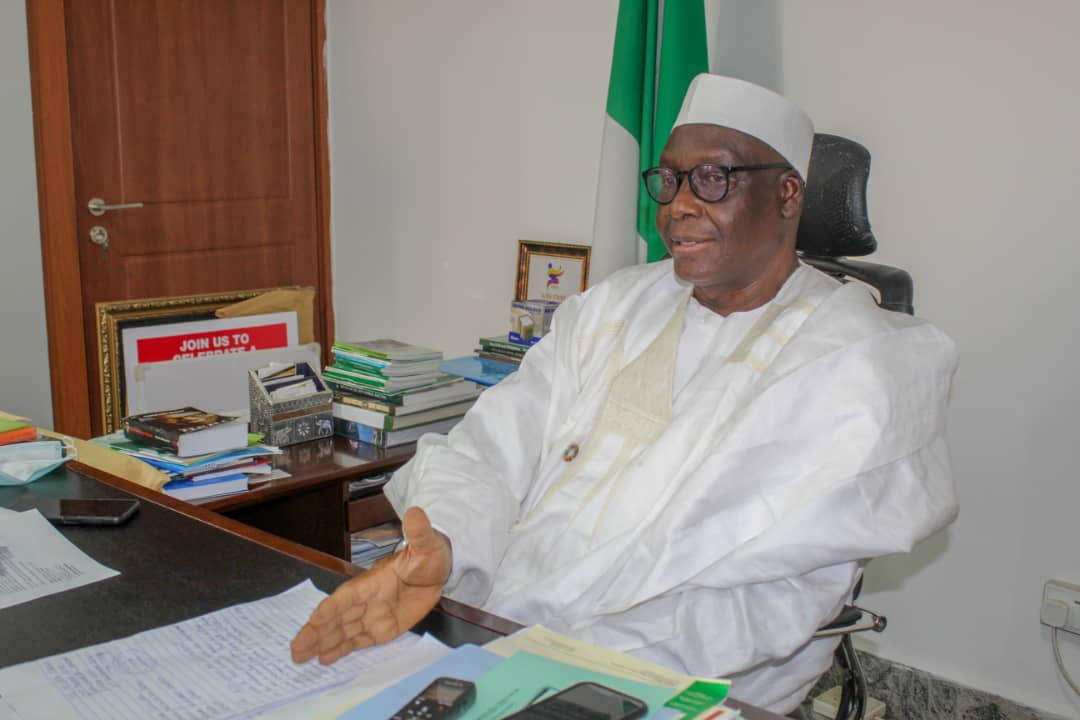
So, there is an Act already signed which allowed some space for the youth to engage with the political process and through engaging with the political process bring out their inner potentials. Beyond the potentials also, their ideas, thought processes and so on.
Now, as a prelude to this youth engagement, the National Orientation Agency organized a summit of the political parties; bring all the political parties because they are key and very central because they are the platforms through which leadership is recruited. So, we brought the political parties here to a roundtable to have an appreciation of their thought processes on the #NotTooYoungToRun Act, on what role they will need to play in ensuring that there is election which is free, fair and transparent; to ensure that the votes of citizens actually count because these are all some of the things are key to ensuring that everybody is included, and to ensure also that elections are not violent so that nobody runs away from it for fear of being harmed, or killed or maimed or disenfranchised. So, this is like a roundtable and run up to the youth conference on how do we respond and key into the #NotTooYoungToRun Act preparatory to 2023.
This is definitely a very challenging time in Nigeria as regards the security challenges. How is the NOA assisting in dousing the tension in the country?
So many ways. Only recently, we were in Enugu to talk about Elder Statesmen reflections on Nigeria. What do we intend to achieve by bringing in elder statesmen from the security challenge place to talk about their reflections on Nigeria? We want the young people to realize, one: there is no alternative to peace. Whatever is your level of grievance even after you must have fought a war at the end of it, it is dialogue and understanding and the spirit of give and take that will bring the peace. So, dialogue, engagement, creating the necessary understanding so that people will realize that it does not pay to be violent because violence affects everybody. In what way? Not only the person who gets killed, who gets maimed in violence is affected. Violence instills fear and so it is a very high form of insecurity. It instills fear.

I am talking from direct experience as someone who came from Maiduguri and lives in Maiduguri. As I am talking to you, my family still lives in Maiduguri; I am talking from the experience of someone who has experienced the Boko Haram violence first hand. I have seen it when it started in 2002 as Yobe Talibans; how it developed and reached its crescendo in 2009 as Boko Haram. How it reached crescendo between 2009 to 2013, 2014; how it started getting degraded from 2015; how from 2017 it also started to manifest; and how it got degraded again from 2019 up to 2020 and then how it also escalated. So, I know actually the extent to which violence can create fear and fear can heighten insecurity. In Maiduguri, violence got to a point where we could not even bury our dead. It was that bad! Markets could not open; children could not go to school; when the parents dropped the children in school, the slightest telephone call they receive, they are afraid because they are busy looking over their shoulders knowing whether the children will come back home safely or not.
Markets were closed and it got to a point where people could not even worship whether Christians or Muslims. Christians could not go to church and Muslims could not go to mosque or it got to a point like if Muslims have to pray in a congregation, they have to get a few of them to stand guard to finish worship before another set will come, ditto for our Christian brothers and sisters. This is how violence can reduce a society and how it can take a shine off humanity.
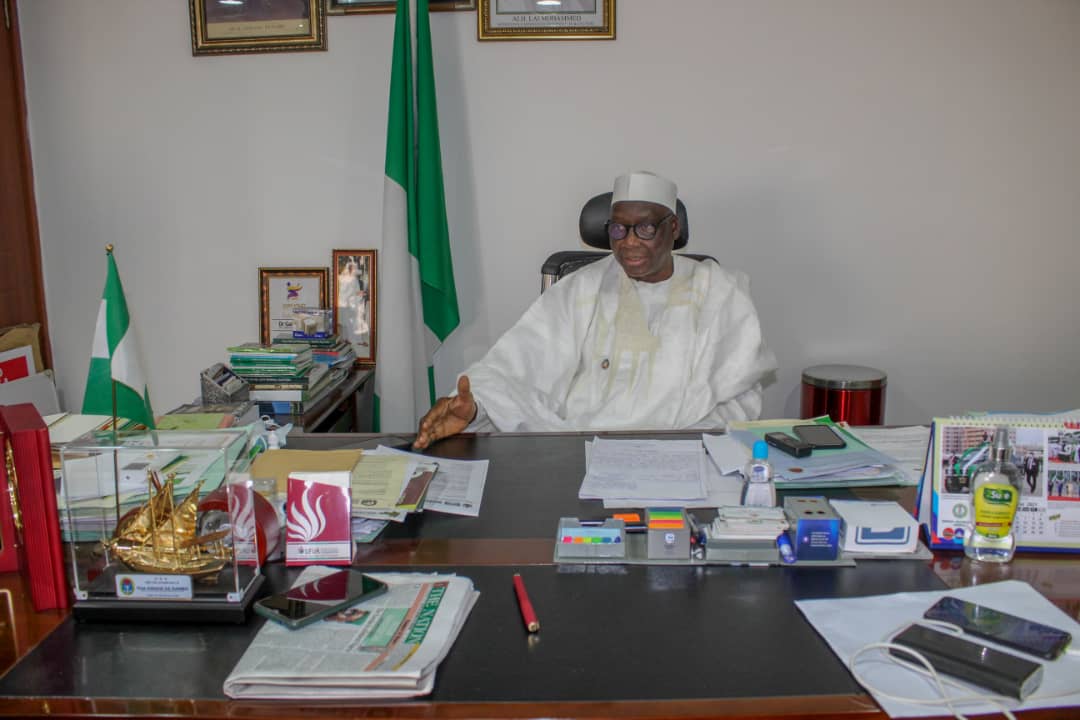
Now, elder statesmen’s reflections on Nigeria is NOA’s strategy of getting the elders not to talk down on the young ones, but to talk to them in their own environment, in the languages that they all speak in their environment because irrespective of the damage that the internet culture had done to our values, we still have respect for elders, we still do. If we don’t respect all the elders, at least some of the parents still respect their parents. It is a Nigerian culture, it is an African culture and it is a culture that is really reinforced by all the major religions. So, the statesmen reflection on Nigeria is one of the ways by which the NOA engages elder statesmen to talk to the young people. We record them, we get their sound bite, we use it on radio and television and use it as sensitization.
Two, the NOA worked out what we call messaging under our platform of building the people of peace. These messages were like a letter; our own version of the letter of Tony Momoh of blessed memory. In that, we highlighted the security challenges and we thought that there is a need for religious leaders to use their platforms on Sundays in churches, on Fridays in mosques because of the very large number of people that congregate. The NOA cannot be in every home but we can actually leverage on these platforms for religious leaders to help us send out such messages, read out these messages to the congregation, make photocopies of these messages and distributed to the congregation.

Then, we have a flagship programme that we call building the people of peace. This programme is actually anchored around what we call the Local Government Assembly and it was a response to the crisis in the central Nigeria when the farmers-herders crisis actually started. Everyone knows that the farmers-herders clash is actually as old as history because these are neighbors engage in two forms of trade that are not mutually exclusive but they all like shopping from the same market. The farmer on the land, the herder on the products of the land – the grass and water and both need this; both need each other.
In the process of co-existence, conflicts as is usual with every human interaction tend to happen but from the days of old, societies have developed traditional and cultural ways of handling such altercations and infractions when they happen, whether it is the famer that is at fault or is the herder that is at fault, there had been and there continues to be traditional and cultural ways of handling this. There are also legal ways of handling this in the event that you don’t want to bring the traditional issues into it; in the event that you don’t want to bring the religious leaders into it, in the event you don’t want to bring the societal ombudsmen into it, you go to court. So, building a people of peace requires that we remind the people of these old good ways of handling conflict and the way to do it is actually to work with the community closely so that we detect early warnings and we respond.

We did that with Benue for example and even before the Benue State Government enacted the Anti-Open Grazing Law, we suspected there could be something that needed to be done, and so we organized the first building the people of peace session with the Benue State Government in the Benue State Government House where the Governor, Commissioners, traditional rulers, religious leaders, civil society organizations, the media, Miyyeti Allah, representatives of farmers were all there and represented, and we had a dialogue. But as if we had a premonition, we cascaded that town hall meeting that we had in the Benue State Government House to Goma Local Government and Loko that eventually turned out to be the flash points of the conflict. So, it is not actually as if the NOA has not been doing much, the issue is we have been doing more than what has been known but we are not known of what we are doing simply we don’t have the money to pay the media for all these things because media is money, information is money and the NOA is actually like an Almajiri organization.
We do the little we can and report to those who are supposed to know what we are doing and praise to God we continue with our sensitization on building the people of peace initiative. In fact, what we have done is to institutionalize the people of people of peace programme so that it can suffice whenever there are flash points.

Listening to you, one will admit that the NOA has done a lot but people are not aware of what you are doing. The point here is how do you then ensures the activities of the agency are cascaded to the people, especially at the grassroots so that they can key into it?
This is what we have actually been doing because I want to give a typical example. When the index case of COVID was reported, the NOA was already on the field sensitizing because it was the month of March and the hot season had already started especially in the Sahel in the Northern part of the country where temperatures have started to rise to 30, 40, 42 degrees. So, the NOA was actually on the field sensitizing on meningitis. Meningitis is usually a seasonal disease that comes with every hot season, and so we were on the field.
Then, the first index case was announced in Lagos, the Italian and then the following day, the NOA organized a sensitization. We brought the Nigerian Centre for Disease Control (NCDC), brought representatives of religious organizations (JNI and CAN), brought traditional rulers, asked all our state directors to join in online for presentation by the NCDC to know what is COVID, what are the symptoms, how are these symptoms different from meningitis because they say it also comes with headache, cough, sore throat and so on. And it is actually respiratory related. So, in fact the NOA was the first organization to work with a frontline organization like the NCDC to develop content on COVID. Because they said it is a novel disease, it is a new disease, we never heard about it, we were never prepared for it, its not like polio, meningitis, diarrhea and so we have to find a way and already a narrative has started to evolve that it is a disease that came from Europe, it is usually by the rich who travel abroad; its for Ministers, Governors, Senators and so on. So, how do we actually not take chance to ensure that we make the people to be aware because the first step towards curtailing the spread of the disease is to know what the symptoms are, awareness on what to do, how to do it, how to keep yourself safe, how to keep others that you inter-mingle with equally safe. So, what do we do?
The first thing we did after the information from the NCDC who actually was still not given an information that was considered final, but whatever information that we took to the people was from the NCDC and so we decided to therefore developed messages. We developed jingles in Hausa, Fulfulde, Kanuri, Ibo, Yoruba and even in the case of Yoruba, we developed jingles in Ekiti dialect which they say is very hard. We also developed jingles in Tiv, Igala, Isoko, Efik, and Ijaw. In fact, in all languages! Why did we have to do that, because we say we speak all Nigerian languages. So, what we wanted to do by that is to make sure that all our people understand the disease.
Now, there is a difference between knowing, being aware on what to do, on how to do it, and then there is also the behavior of what to do after you know all of these.
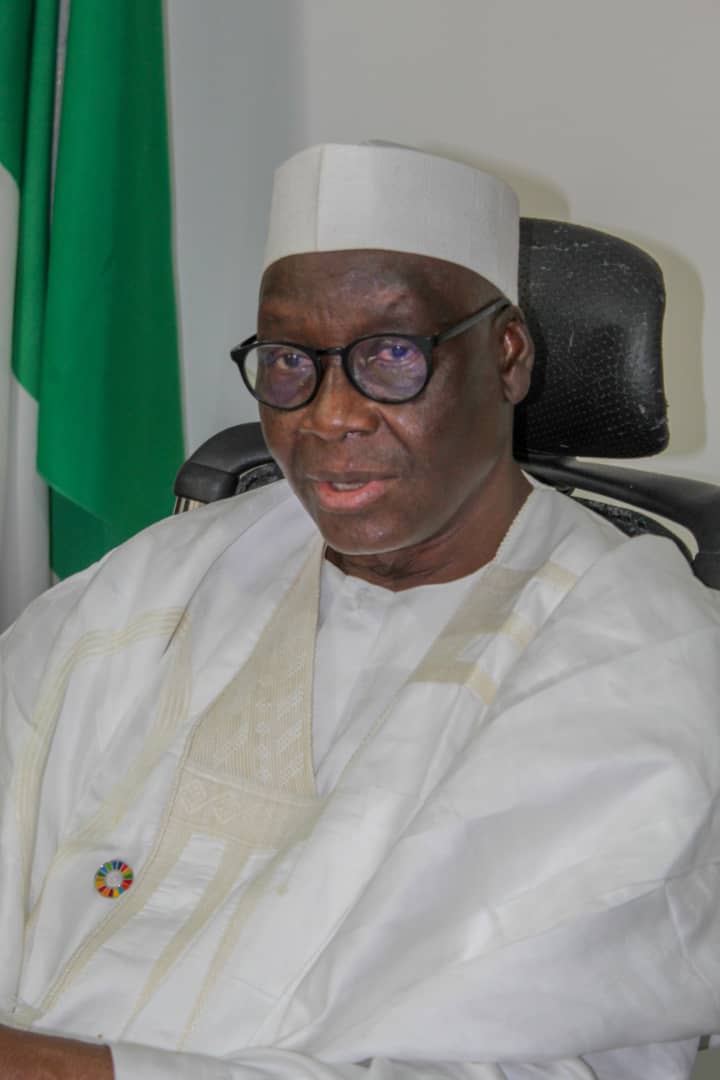
Finally, as NOA continues with the different programmes, where do you see the agency in the next two to three years?
I hope the agency will still be here; I hope the agency will still be an agency that will be better in carrying out its responsibilities but I also envisage an agency in the next three years with a staffing capacity that is very highly efficient, digital, responsive to the realities of its environment and of course an agency that gets both the support of the government and the citizens.
If we are talking about attitudinal change, it is not all about government because we cannot legislate love for the country; we cannot legislate law and order. We have laws and order yet Nigeria became one of the countries with the worst case of impunity; we have laws and order, yet as simple as obeying traffic rules, it is difficult.
If you just sit down for five minutes by any traffic light, you will see the level of recklessness by the average Nigeria as simple as obeying traffic rules. That is not what they do when we go out of the country. As simple as disposal of waste and when we suffer flooding we say government has not done anything; when in the course of disobeying traffic rules, we run into accident, we accuse government. So, attitudinal change must reflect from top to bottom. But more importantly, leadership must have to come to citizens clean; leadership must be opened; must be held to account; must be prepared to be held to account; must be transparent; must be exemplary; only then will government have the teeth to apply the law when citizens go by way of infraction.


